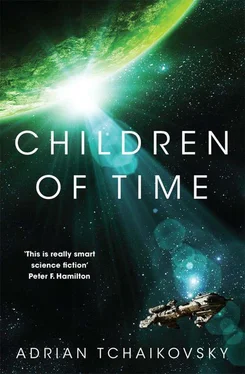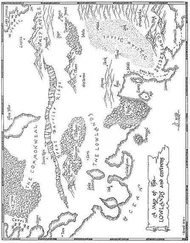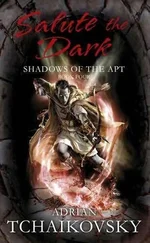It was far less than those early exploration recordings would have led him to expect, but then there were no ancient dead here, no suggestion that this installation had fallen victim to the infighting that had brought down the Empire and its entire way of life. The long-ago engineers had simply departed, probably heading back for Earth when everything went wrong. This terraforming project they had begun had been left to the slow, heedless mercy of the stars.
It could have been far worse. Lain had said the place had been poisoned, infected with some kind of electronic plague that had destroyed the original life support and a great deal of the station’s core systems. The Gilgamesh had turned out to be too much of a poor imitation of the Old Empire’s elegant technology, though. Their technology had proved stony ground, the virtual attack frustrated by their primitive systems. Whether Kern had known and sent them into a trap was a subject of some debate amongst everyone except Engineering, who had been tasked with jury-rigging as much of the station’s systems as possible into giving up their secrets.
A sound behind Holsten brought him abruptly out of his reverie. It had been a quiet, stealthy sound, and for a moment he had a nightmare flash of memory of that distant green world with its giant arthropods. No monster, though: behind him was only Guyen.
‘It’s all going well, I trust?’ the ark ship commander inquired, regarding Holsten as though suspecting him of something disloyal. He was leaner and greyer now than he had been when leaving the moon colony behind. Whilst Holsten had slumbered peacefully, the commander had been waking up, on and off, to oversee the operation of his ship. Now he looked down on his chief classicist with an actual seniority in age to match his rank.
‘Steadily,’ Holsten confirmed, wondering what this visit was about. Guyen wasn’t a man for pleasantries.
‘I’ve been looking over your catalogue.’
Holsten fought down the temptation to express surprise at anyone doing such a thing, let alone Guyen.
‘I’ve a list of items I want to read,’ the commander told him. ‘At your earliest convenience, of course. Engineering requests take precedence.’
‘Of course.’ Holsten tilted his head at the screen. ‘Do you want to…?’
Guyen passed over a tablet displaying half a dozen numbers entered neatly there, in the format of Holsten’s homegrown indexing system. ‘Direct to me,’ he pressed. He didn’t actually say, Don’t tell anyone else about this , but everything in his manner hinted at it.
Holsten nodded mutely. The numbers gave him no suggestion as to what it was all about, or why any of this needed to be requested in person.
‘Oh, and you might want to come listen. Vitas is going to tell us the news about the planet here, and how far along the terraforming got.’
That would be welcome, and something Holsten had been impatiently waiting for. Eagerly he got up and followed after Guyen. Enough of the secrets of the past for now. He wanted to hear a little more of the present and the future.
Portia looks out across the vast, interconnected complexity that was Great Nest and sees a city just beginning to die.
In the last few generations, Great Nest’s population has swelled to somewhere near a hundred thousand adult spiders, and countless – uncounted – young. It spreads through several square miles of forest, reaching from the earth to the canopy, a true metropolis of the spider age.
The city Portia sees now is depopulated. Although the dying has only just started, hundreds of females are abandoning Great Nest for other cities. Others simply strike out into the remaining wilderness to take their chances, relying on centuries-old Understandings to recapture the lifestyle of their ancient huntress ancestors. Many males have fled too. Already the delicate structures of the city are showing some disrepair as basic maintenance is disregarded.
Plague is coming.
In the north, a handful of great cities are already in ruins. A global epidemic is leaping from community to community. Hundreds of thousands are already dead from it, and now Great Nest has seen its own first victims.
She knows this was inevitable, for this current Portia is a priestess and a scientist. She has been working to try and understand the virulent disease, and to find a cure.
She does not quite understand why this disease has had such an impact. Aside from its highly contagious nature, and its ability to spread by contact – and somewhat less reliably through the air – the sheer concentration of bodies in the cities of Portia’s people have turned a minor, controllable infection into something more virulent than the Black Death. Such great concentrations of bodies have led to all manner of squalor and health problems; Portia’s people were only beginning to grasp the need for collective responsibility for such issues when the spread of the plague caught them unawares. Their casual, almost anarchic form of government is not well suited to taking the sort of harsh measures that might be effective.
Another factor in the deadliness of the disease is the practice, increasingly common in the last century, of females choosing males born within their own peer group as mates, in an attempt to concentrate and control the spread of their Understandings. This practice – well meaning and enlightened in its way – has led to inbreeding that has weakened the immune systems of many powerful peer houses, meaning that those who might possess the power to take action are often first to come down with the plague when it erupts. Portia is aware of this pattern, though not the cause, and she is also aware that her own peer group fits that pattern all too well.
She is aware that there are tiny animicules associated with disease, but her magnifying lenses are not acute enough to detect the viral culprit for the plague. She has the results of experiments carried out by fellow scientists from other cities, many of whom are dead of the plague themselves, now. Some even arrived at a theory of vaccination, but the immune system of Portia’s people is not the efficient and adaptive machine that humans and other mammals can boast. Exposure to a contagion simply does not prepare them for later, kindred infections in the same way.
The world is falling apart, and Portia is shocked at how little it has taken for this to occur. She had never realized that her whole civilization was such a fragile entity. She hears the news from other cities where the plague is already rife. Once the population begins to drop – from death and desertion – the whole structure of society collapses swiftly. The elegant and sophisticated way of life that the spiders have built for themselves has always been strung over a great abyss of barbarism, cannibalism and a return to primitive, savage values. After all, they are predators at heart.
She retreats to the Temple, picking her way past the mass of citizens who have taken refuge therein, seeking some certainty from beyond. There are not as many as the day before. Portia knows this is not just because there are fewer of her people left in the city: she is also aware that there is a slowly growing disillusionment with the Messenger and Her message. What good does it do us? they ask. Where is the fire sent from heaven to purge the plague?
Touching the crystal with her metal stylus, Portia dances to the music of the Messenger as it passes overhead, her complex steps describing perfectly the equations and their solutions. As always, she is filled by that measureless assurance that something is out there: that just because she cannot understand something now does not mean that it cannot be understood.
Читать дальше












